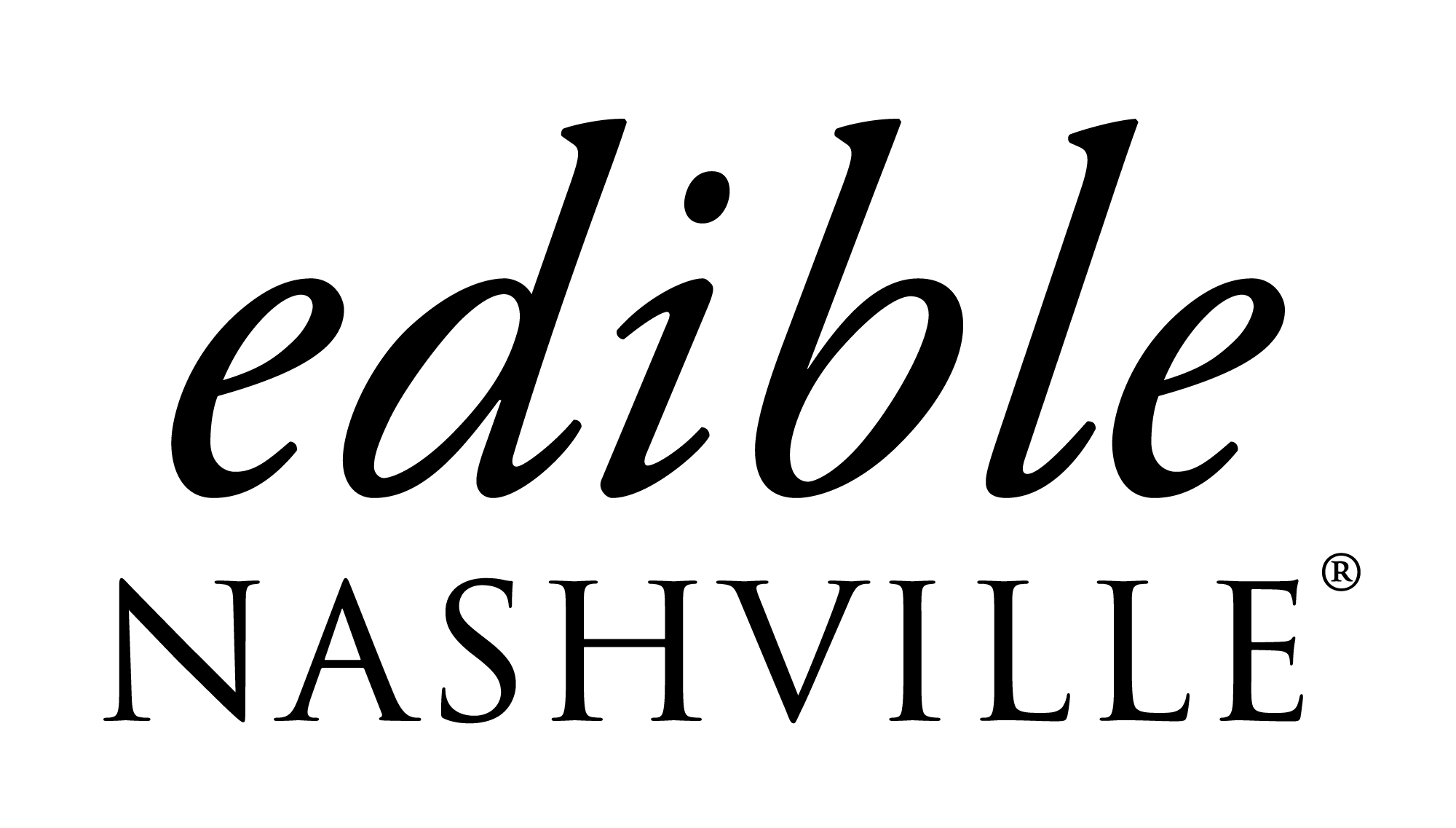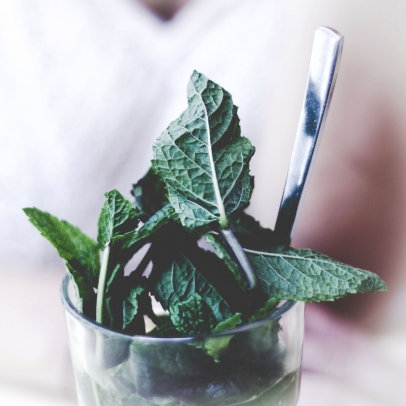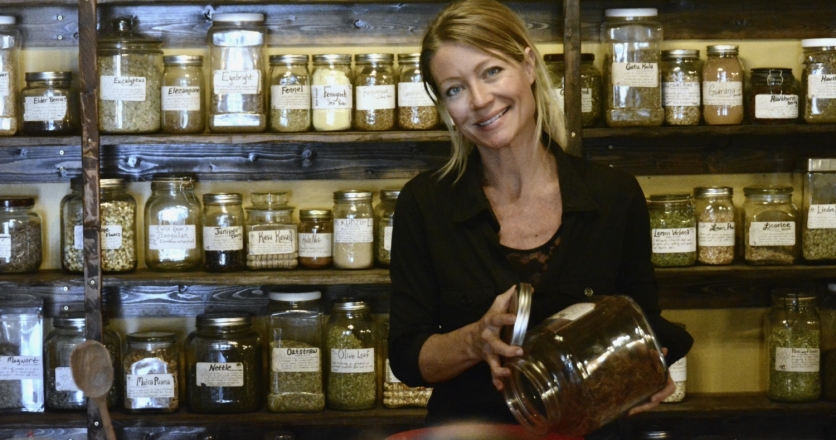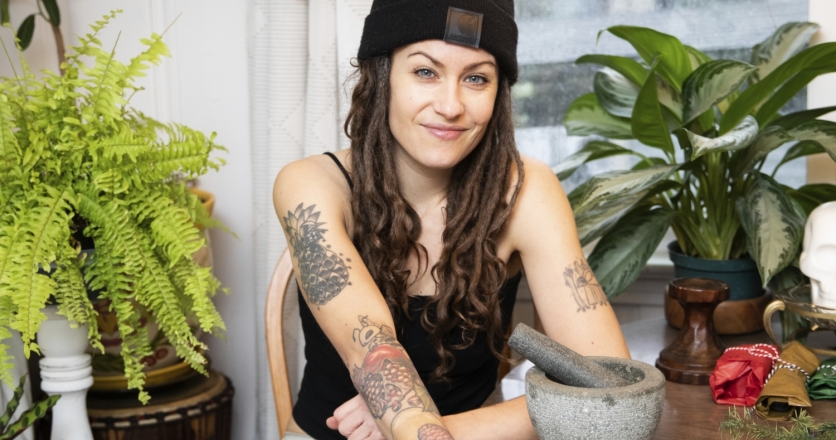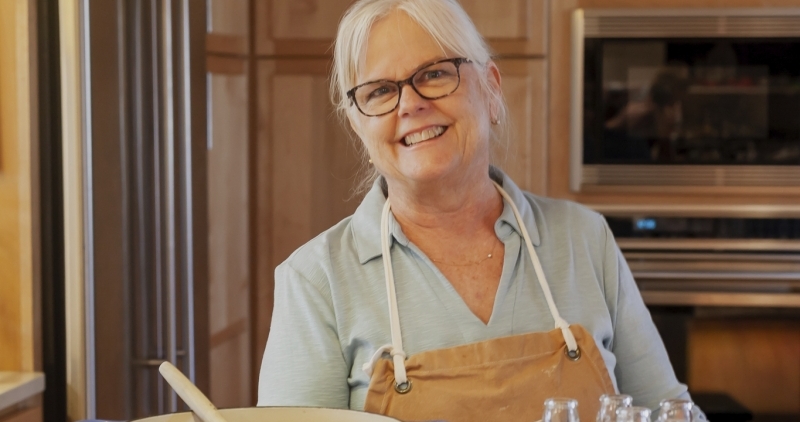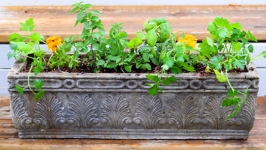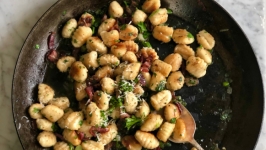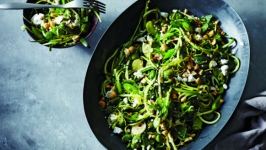Three Herbalists in Nasvhille
Herbalism, like astrology or tarot cards, has been lived for the most part in the underbelly of society. Until now. With our desire to live authentic lives, get in touch with the earth and live more naturally, many of us have turned to homeopathic remedies, including herbal teas, tonics, and potions. Skeptical? Health benefits aside, fresh and dried herbs are a vital part of any good cooking arsenal. Where would we be without pesto, curries, or marinara sauce? But as these three herbalists will tell you, herbs were used for healing way before pharmaceuticals or pesto.
Many nutritive herbs touted by naturopaths (those who use natural remedies to help the body heal itself) are hiding in our own kitchen cabinets, local grocery store, or neighborhood farmers market. “We just have to get to know them,” says Leah Larabell, owner of East Nashville’s herbal teahouse darling, High Garden Tea. “If you open your eyes and take off the blinders, every single plant - the leaves, stem, root, flower - no exception, is food or medicine.”
Leah has been pursuing her herbal studies for 15 years and is just one of several local herbalists who have dedicated themselves to reviving this ancient healing tradition.
After opening the teahouse, she and her husband Joel founded the Wholistic Herbalism and Traditional Skills School in Nashville. One popular class they teach is ‘Foraging and Feasting’, where students go outside and learn to identify, gather, and cook with local, wild, and edible herbs.
Chickweed, dandelion, and ground ivy (creeping charlie) are just a few examples of herbs that grow wild in our area and will soon be abundant in late winter to early spring. Most can be found in your own back “yarden,” as Leah likes to call it. However, she stresses the importance of learning how to properly identify these wild herbs before attempting to forage them on your own.
More Accessible Than Meets the Eye
Nashville, as with the rest of the country, is witnessing a groundswell of interest in herbalism. Herbalism is the practice of using herbs or herbal remedies to help us heal everyday ailments, support our health, and improve wellbeing. While this may sound straightforward, the concept of herbalism is often misconstrued, carrying connotations of being inaccessible, hokey, or of a bygone era.
“We are coming out of the herbal dark ages,” says Leah. She’s heard herbalism called “everything from witchcraft to ‘woo woo,’” and believes this is due to our relationship with plants becoming disconnected at some point.
The irony here is that the art of using herbs to support wellness and heal everyday ailments dates back more than 50,000 years, long before the advent of modern medicine or our use of herbs for culinary purposes.
In speaking with Leah and others, it became clear that herbalism is much more approachable and pragmatic than some might have us think. In fact, we’re all probably practicing herbalism in some form or another without even realizing it.
Take, for instance, that morning cup of coffee that’s a daily ritual for many. “Plants have compounds and chemicals that meet our body’s chemistry and create a reaction,” says Leah. She’s had customers come into High Garden skeptical, asking her if herbs “’really work.’” To which she sometimes responds, “Does that coffee give you energy? That’s an herbal tea.”
Herbs as Teachers
“Herbalism is about getting rid of ego,” comments Leah. “It’s the plants that have the knowledge. An herbalist just learns which plants to call upon. It’s like being a really good matchmaker.”
Madison-based herbalist Leilani Diaz shares this same sentiment. Her herbalism practice is rooted in the strong conviction that “plantsherbs grow us, not the other way around. If we are patient enough to stop and listen to the natural world around us, plantherbs have much to teach us.” Her main focus is nourishing the body utilizing herbs that you can easily find in your own backyard.
Leilani began experimenting with making various home herbal remedies for herself, family, and friends after moving to Nashville five years ago. Encouraged by their positive feedback and empowered by how these herbal creations made her more self-reliant, Leilani was called to create Wild Bruja Apothecary.
“Herbalism empowers us us to able to is takeking your health into your own hands,” she notes. Leilani makes potent small batch herbal extracts, salves, balms, oral care productsoxymels, and other herbal offerings that can be found at High Garden Tea or ordered online.
Herbs vs. Modern Medicine
One major misconception is the notion that herbalists don’t believe in modern medicine or that they generally dismiss its value. While there are surely some who might resonate with that idea, the women I spoke with don’t necessarily look at the two as mutually exclusive.
Instead of being so black and white, herbalism was described as yet another tool in our toolbox; one more way we can support our bodies to stay well or heal ourselves. “You should never replace a doctor with an herbalist,” Leah advises. “Herbs are not ‘medicine.’ They are building blocks that feed the body so it can do what it needs to do in a stronger way.”
It surprises a lot of people when she tells them she is grateful for modern medicine. “In fact, I see a growing interest in herbalism coming from the medical world,” especially those looking for more holistic ways to treat and support their patients’ health.
On Becoming an Herbalist
Marna McKinney has spent more than three decades as a healer and herbalist in middle Tennessee, giving private sessions, workshops, and lectures on herbalism.
While she has a professional certificate in Traditional Western Herbal Medicine from the North American Institute of Herbal Medicine and is completing a clinical mentorship with Riverdell Herbs, she believes that herbal wisdom is in our DNA. “Everyone has it because everyone eats.”
Walking into her kitchen, the smell of simmering elderberries fills the room; she is making a base for elderberry syrup for me to take home, as well as the fixings for fire cider vinegar, a traditional herbal remedy used to ward off colds and dry out sinuses during winter.
This sharing seems as natural to her as the herbs that she grows a few feet away in her herb garden. The act of passing down is how she learned. She urges those interested in the path of herbalism to listen to their elders – in both their family and their community, to see what herbal traditions they might have to impart.
“When we learn to ‘go back to our roots,’’ says Marna, “we might find that what we need has been under our feet all along.”
